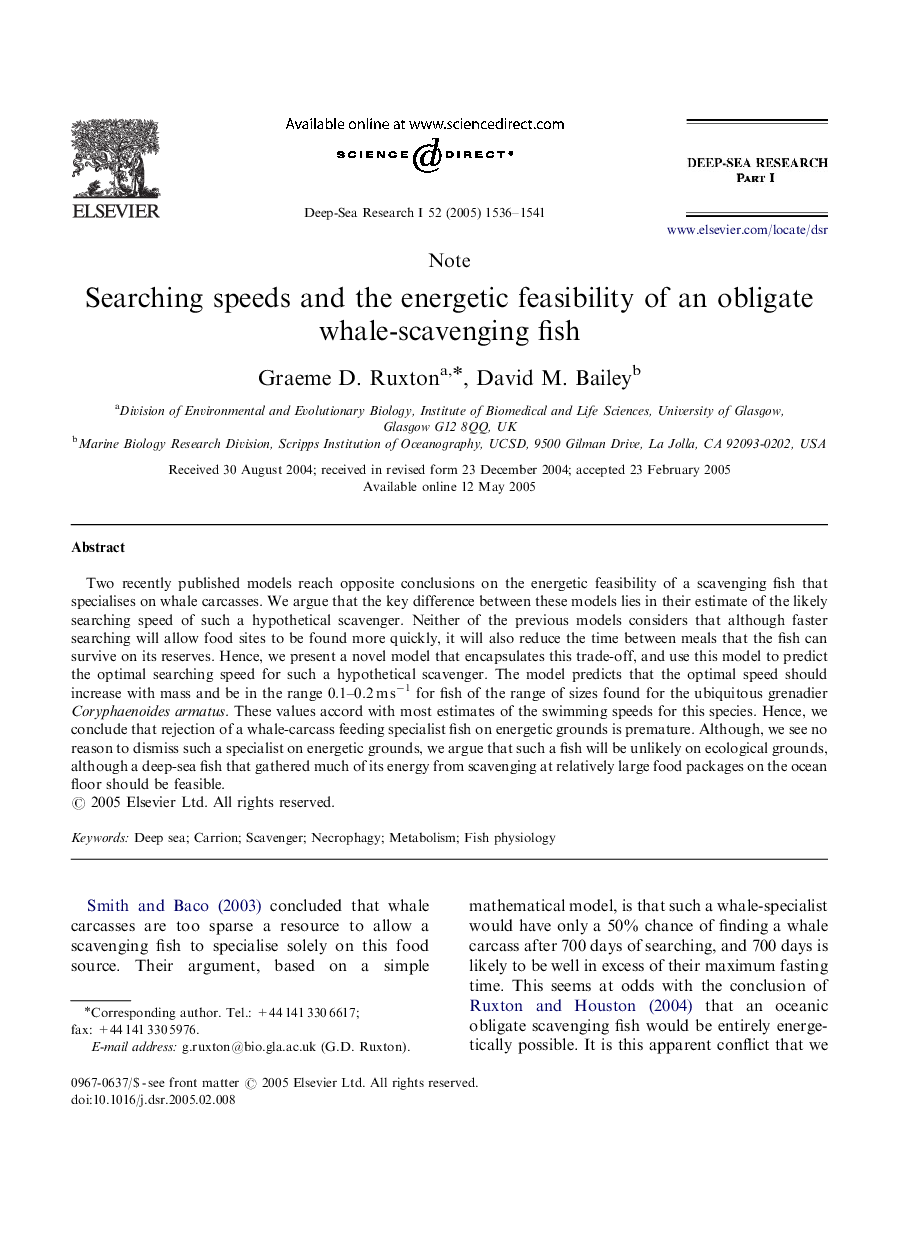| Article ID | Journal | Published Year | Pages | File Type |
|---|---|---|---|---|
| 9479753 | Deep Sea Research Part I: Oceanographic Research Papers | 2005 | 6 Pages |
Abstract
Two recently published models reach opposite conclusions on the energetic feasibility of a scavenging fish that specialises on whale carcasses. We argue that the key difference between these models lies in their estimate of the likely searching speed of such a hypothetical scavenger. Neither of the previous models considers that although faster searching will allow food sites to be found more quickly, it will also reduce the time between meals that the fish can survive on its reserves. Hence, we present a novel model that encapsulates this trade-off, and use this model to predict the optimal searching speed for such a hypothetical scavenger. The model predicts that the optimal speed should increase with mass and be in the range 0.1-0.2 m sâ1 for fish of the range of sizes found for the ubiquitous grenadier Coryphaenoides armatus. These values accord with most estimates of the swimming speeds for this species. Hence, we conclude that rejection of a whale-carcass feeding specialist fish on energetic grounds is premature. Although, we see no reason to dismiss such a specialist on energetic grounds, we argue that such a fish will be unlikely on ecological grounds, although a deep-sea fish that gathered much of its energy from scavenging at relatively large food packages on the ocean floor should be feasible.
Related Topics
Physical Sciences and Engineering
Earth and Planetary Sciences
Geology
Authors
Graeme D. Ruxton, David M. Bailey,
